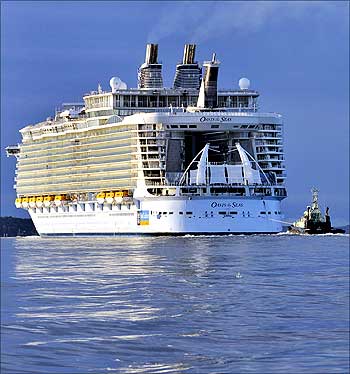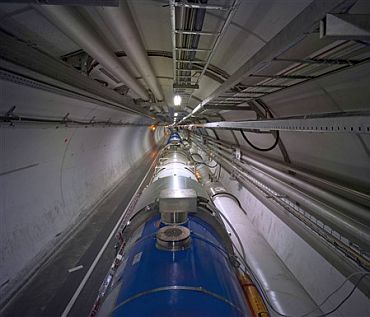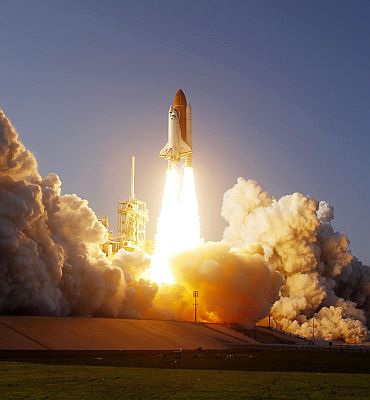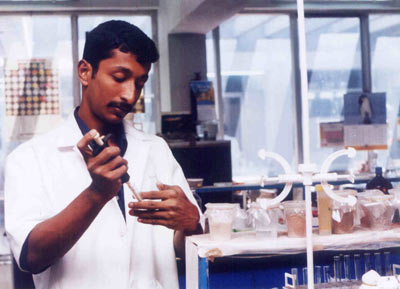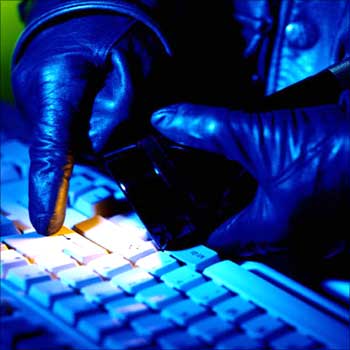 | « Back to article | Print this article |
Top 7 unconventional applied science courses you can consider
Most of us learn the theoretical aspects of science right through school.
Applied Science differs from basic science because the latter seeks to describe the most fundamental objects and forces having less emphasis on practical applications. It includes testing a theoretical model through the use of formal science or solving a practical problem through the use of natural science.
Here we try and look at interesting and non-conventional courses in Applied Science.
1. PG Diploma of Associateship of National Sugar Institute (Sugar Engineering)
& Electronics Engineering or Mechanical Technology or equivalent qualification
The course of Associateship of National Sugar Institute (Sugar Engineering) enables students to conduct research in various aspects of sugar manufacturing.
It trains candidates to provide technical advice to sugar and allied industries in the matters related to mills, boilers, power house, steam balance and surplus power generation.
The diploma-holders can apply for positions like Assistant Engineers, Production Engineers in the sugar industry. Along with theoretical knowledge, students get plant training at an experimental sugar factory established inside NSI.
Established in 1936 as Imperial Institute of Sugar Technology, it was rechristened as National Sugar Institute in 1957 after India attained independence.
To get admission to this course, students do not need any experience in this specific industry. As per norms, around 25 students from different categories are selected yearly on the basis of a pan-India written entrance test.
2. UG programmes in Maritime Industry
The words 'maritime' refers to activities related to sea. Ports and Shipping form an integral part of maritime commerce, which contributes greatly to the Indian economy.
There are various courses available for students including those offered by Indian Maritime University (IMU). The programmes offered by this institute include BSc (Nautical Science), BTech (Marine Engineering), BSc (Maritime Science) and BTech (Naval Architecture and Ocean Engineering). Successful students are able to explore jobs in Shipping, Shipbuilding, Ocean Engineering Industries, Indian Navy, DRDO, Classification Societies, to name a few.
Its eight different campuses prepare students to become Navigating Officers, Marine Engineers and Polyvalent Officers, who can reach high positions in respective fields with experience.
Students are selected on the basis of performance in the Joint Entrance Examination conducted by IITs. Other such institutes include Indian Institute of Port Management, Kunjali Marakkar School of Marine Engineering, Marine Engineering and Research Institute, Training Ship Chanakya and a few private institutes.
3. Diploma in Radiological Physics
The Bhabha Atomic Research Centre (BARC), Mumbai, is India's premier multidisciplinary nuclear research centre. Radiological Physics is a branch of physics that deals with interaction of radiation with matter in general and covers areas like radioactivity, atoms, alpha, beta, gamma rays and X-rays. It is also linked to radiation therapy in medical field.
BARC offers the Diploma in Radiological Physics, a one-year course with an intake of 25 (five sponsored and 20 non-sponsored candidates).
Students with an MSc degree in Physics with 60 per cent marks (aggregate in BSc and MSc) can apply for this course.
The sponsored candidates are required to have at least one year of work experience, ideally with a radio therapy centre.
The applicants are screened for the course through a written test followed by an interview.
4. B.Tech in Aerospace, Avionics & Physical Sciences
The study of space sciences deals with space travel and space exploration, including space medicine. Astronomers are the people often related to this sector, which has a wider scope in different related areas. Some of these are aerospace, avionics and physical sciences.
Indian Institute of Space Science and Technology, a deemed university, offers three B.Tech programmes to produce professionals in these areas. They are B.Tech in Aerospace Engineering, B.Tech in Avionics and B.Tech in Physical Sciences.
The course in Aerospace Engineering focuses on space technology and has significant overlap with Mechanical Engineering. Students can build their career in Flight Mechanics, Aerodynamics, Thermal and Propulsion, Structure and Design and Manufacturing Science after it.
The course in Avionics covers Electronics and Communications programmes. It provides exposure to Advanced Electronics in digital and communication, control systems and computer systems used in aerospace systems.
Successful completion of this course gives students a chance to apply their knowledge in institutes like Vikram Sarabhai Space Centre in Trivandrum, ISRO Satellite Centre in Bangalore, Space Application Centre in Ahmedabad, Sathish Dhawan Space Centre, SHAR, Bharat Electronics Limited, Hindustan Aeronautics Limited and various other industries involved in design and development of electronics systems.
The third course, in Physical Sciences, helps in analysis of basic sciences in Space Science, Space Technology and Space Application with emphasis on Physics, Chemistry and Mathematics. It gives exposure to important applications of space technology such as Remote Sensing and GIS, Astronomy and Astrophysics, and Earth System Sciences. Selection to all these programmes is done through All India Admission Test (ISAT).
5. MSc and PG Diploma in Bioinformatics, Biotechnology and Cheminformatics
Over the last two decades, we have witnessed branching of biology into new areas like biotechnology and bioinformatics.
While in bioinformatics, computers are used to gather, store, analyse and integrate biological and genetic information; biotechnology is the field of applied biology that involves the use of living organisms and bioprocesses in engineering, technology, medicine, among others.
Further, bioinformatics involves integrative or multidisciplinary approach that is inclusive, but not exclusive of computational, mathematical and statistical methods to study, organise analyse and interpret biological information, at the molecular, genetic and genomic levels.
The Institute of Bioinformatics and Applied Biotechnology (IBAB), Bangalore, is an important research and training centre under Department of Information Technology, Government of India.
It offers an eighteen-month MSc in Bioinformatics and Biotechnology (degree awarded by IGNOU) along with PG Diplomas in Bioinformatics or Cheminformatics and PhD programme (degree awarded by Manipal University). The PG diplomas also have a duration of eighteen-months divided into three semesters.
IBAB hosts GANIT Labs, a multi-institutional public-private partnership (PPP) effort under the aegis of Department of Information Technology, Government of India, and Department of IT, BT and ST, Government of Karnataka, which works in the area of genome sequencing and data analysis.
The students are exposed to the most recent advances in the biotech industry and academic research through the large number of scientists who visit IBAB all year around from across the globe. These courses are essential for entering the fields of biotechnology and allied sciences.
6. Post Graduate Internship in Radio Astronomy
Website:www.ncra.tifr.res.in
Studying radio astronomy entails dealing with celestial objects at radio frequencies.
Engineering students working in this field detect radio waves from astronomical objects like Karl Jansky first observed radiation coming from the Milky Way in the 1930s.
Discovering entirely new classes of objects in the universe and beyond is the domain of radio astronomy. This internship programme helps students build a research career in astronomy, particularly in radio wavelengths.
The programme consists of courses in basic physics (classical and quantum mechanics, statistical mechanics and electrodynamics) at the Master's level, allied with exposure to computation, data analysis and basic astronomy. The students will have a first-hand experience on the Giant Metrewave Radio Telescope (GMRT), a facility at National Centre for Radio Astrophysics (NCRA) at TIFR, during the internship.
They also get a chance to participate in observatory-related and academic activities at NCRA and GMRT, and will be given campus accommodation and a stipend.
The skills and experience that the students will acquire during their study have broader applicability in other branches of astronomy and physics.
Once the course is done, students can qualify themselves for NCRA-IUCAA Inter-University Centre for Astronomy and Astrophysics graduate school through an entrance examination. They can then join NCRA as research scholars and work towards a PhD degree.
7. Certificate course in Cyber Security and Computer Forensics
As the use of computers and the Internet continues to spread in all areas of human endeavour, concerns over data security and cyber crimes are increasing rapidly. In this age of technology and communication convergence, one cannot help but be impacted by technologies and innovations that centre on computers and the Internet.
But as our daily lives revolve around these technologies, there are times that we feel truly paranoid about our own safety. May it be our physical safety or the security of our personal hardware and software.
National Institute of Financial Management, an autonomous organisation under Ministry of Finance, offers a three-month certificate course in cyber security and computer forensics in collaboration with Gujarat Forensic Sciences University, Gandhinagar.
National Institute of Finance Management was envisaged as a training institution for officers recruited by the Union Public Service Commission (UPSC) through the annual Civil Service Examinations.
The course, which has been divided into modules of IT security and Computer Forensics, seeks to create skilled manpower in the field of information security and computer forensics. Graduates in any discipline with working knowledge of computers can apply for the course, though candidates with degrees like BCA, BE, B.Tech, MCA, M.Tech would have an advantage.
The selection of the candidates is based on a written test conducted at NIFM campus. The institute also offers two-year full-time postgraduate diploma in financial management. The Program is duly recognised by the All India Council of Technical Education (AICTE) and has also been recognised equivalent to Master's programme in Management by Association of Indian Universities (AIU).

